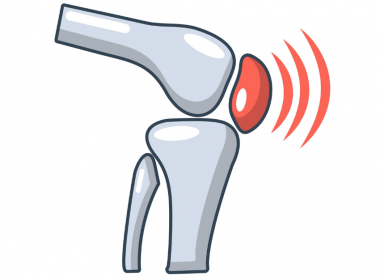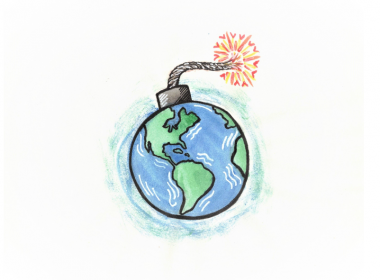A Google research paper describing one of the most powerful quantum computers in human history was leaked on NASA’s website on Sept. 20. In 200 seconds, the quantum computer executed tasks that would take the fastest of today’s computers 10,000 years to compute. Google was referencing an experimental type of[Read More…]
Science & Technology
The latest in science and technology.
The science of knee injuries
With today’s proliferation of high-intensity sports, the number of knee injuries in North America over the past decade has skyrocketed. Since knee injuries vary depending on a person’s sport, age, and sex, different people may experience different knee injuries in their lives. Shawn Robbins, a professor in the School of[Read More…]
Écotech event aims to implement eco-friendly solutions through technology
Young professionals recently took part in EnergyHack, an energy efficiency hackathon. The event, hosted by Écotech Québec on Sept. 28, prompted participants to choose and solve one of two challenges provided by the city of Varennes, an off-island suburb of Montreal, and the borough of Saint-Laurent. The winning teams from[Read More…]
Jane Goodall returns to McGill
Jane Goodall began her second Beatty Lecture as she did her first: By saying hello to the audience in “chimpanzee.” Goodall, best known for her work in studying African chimpanzees and her later humanitarian and environmental activism, spoke on Sept. 26 at the 65th anniversary of McGill’s Beatty Lecture series. [Read More…]
Microplastics: A ubiquitous problem
In 2017, Orb Media, a non-profit media group, sparked public concern after they published research showing that microplastics were present in global drinking water. Since then, research efforts have increased to examine the effect of microplastics on species and find ways to make the removal process more efficient. At a[Read More…]
Nobel Prize winner in Chemistry inspires McGill students
On Sept. 26, a sea of undergraduate and graduate students packed into the Pollack Hall auditorium. They were there to listen to Martin Chalfie, an acclaimed geneticist and winner of the 2008 Nobel Prize in Chemistry, speak about his discovery of the green fluorescent protein (GFP). GFP is a bioluminescent[Read More…]
Open Future Essay Competition winner covers climate change and law
McGill law student Larissa Parker recently won the highly competitive Open Future Essay Competition. In her winning essay published in The Economist, she wrote about extending legal rights to future generations to fight climate change. Parker addressed one of the most disheartening realities of climate change: Though we are already[Read More…]
Searching for a home away from home
Scientists believe that planets outside of the solar system capable of supporting life should look a lot like Earth. The theory posits that if the chemical components comprising Earth’s atmosphere can be found in that of distant planets, those worlds could harbour similar carbon-based life-forms. This summer, two McGill University[Read More…]
Blending Western and traditional medicine in Colombia
In 2014, Juan Pablo Pimentel, a PhD candidate in the Department of Family Medicine at McGill, created a pilot exercise that has since become the basis for his PhD thesis. Working with Family Medicine professors Dr. Neil Andersson and Dr. Anne Cockcroft, Pimentel devised a way for medical students in[Read More…]
The McGill Climate Conference covers climate policy and solutions
On Sept. 12 and 13, 15 speakers from various disciplines participated in the McGill Climate Conference, a comprehensive event spanning six panels held at the McGill Faculty Club. Emphasizing equitability and inclusion, the speakers confronted some of the most pressing issues facing Canada in its transition to a green economy,[Read More…]















